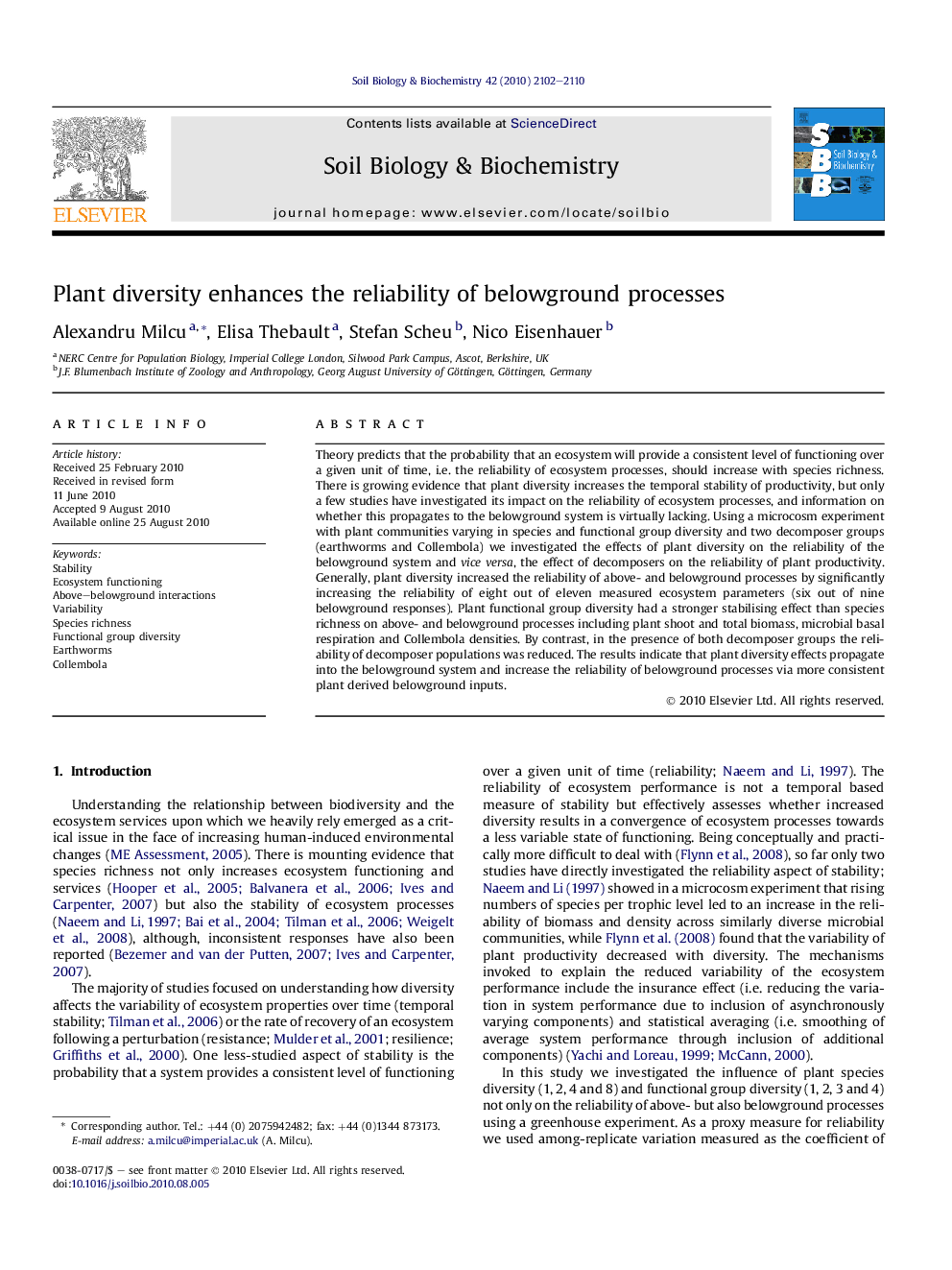| Article ID | Journal | Published Year | Pages | File Type |
|---|---|---|---|---|
| 2025363 | Soil Biology and Biochemistry | 2010 | 9 Pages |
Theory predicts that the probability that an ecosystem will provide a consistent level of functioning over a given unit of time, i.e. the reliability of ecosystem processes, should increase with species richness. There is growing evidence that plant diversity increases the temporal stability of productivity, but only a few studies have investigated its impact on the reliability of ecosystem processes, and information on whether this propagates to the belowground system is virtually lacking. Using a microcosm experiment with plant communities varying in species and functional group diversity and two decomposer groups (earthworms and Collembola) we investigated the effects of plant diversity on the reliability of the belowground system and vice versa, the effect of decomposers on the reliability of plant productivity. Generally, plant diversity increased the reliability of above- and belowground processes by significantly increasing the reliability of eight out of eleven measured ecosystem parameters (six out of nine belowground responses). Plant functional group diversity had a stronger stabilising effect than species richness on above- and belowground processes including plant shoot and total biomass, microbial basal respiration and Collembola densities. By contrast, in the presence of both decomposer groups the reliability of decomposer populations was reduced. The results indicate that plant diversity effects propagate into the belowground system and increase the reliability of belowground processes via more consistent plant derived belowground inputs.
